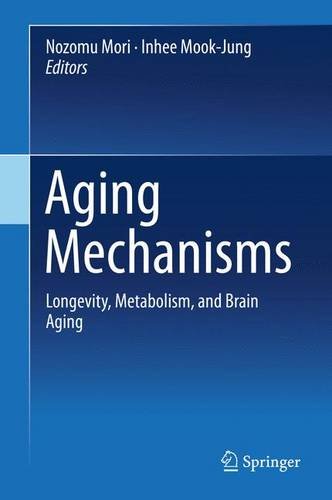

Most ebook files are in PDF format, so you can easily read them using various software such as Foxit Reader or directly on the Google Chrome browser.
Some ebook files are released by publishers in other formats such as .awz, .mobi, .epub, .fb2, etc. You may need to install specific software to read these formats on mobile/PC, such as Calibre.
Please read the tutorial at this link: https://ebookbell.com/faq
We offer FREE conversion to the popular formats you request; however, this may take some time. Therefore, right after payment, please email us, and we will try to provide the service as quickly as possible.
For some exceptional file formats or broken links (if any), please refrain from opening any disputes. Instead, email us first, and we will try to assist within a maximum of 6 hours.
EbookBell Team

4.4
12 reviewsThis book brings together the most up-to-date information on recent research results of leading laboratories on aging science in East Asia, particularly in Japan, Korea, and Hong Kong. Starting with a comprehensive overview of various hypotheses on biological mechanisms of aging by Dr. Sataro Goto, each chapter covers broad aspects of the most recent findings in aging-related topics: centenarian studies and genome analysis of progeria, metabolic biochemistry and neurobiology, longevity controls in yeast and nematodes, oxidative stress and calorie restriction, and neurodegeneration mechanisms in Alzheimer’s and Huntington’s diseases, with further potential therapeutic approaches to these age-related neurodegenerative diseases. Also included, in part, is a summary and the outcomes of a scientific discussion forum called the Asian Aging Core for Longevity (AACL) that has been held annually alternating between Japan and Korea during the last decade. This book can serve as a useful resource for finding appropriate collaborators in the areas it covers. The target readership is made up of graduate students and researchers at universities, medical and/or life-science schools, and biomedical and pharmaceutical institutes.
Why does aging exist? How do we age? How is each organism’s lifespan determined? These are fundamental questions in the field. We may be still far from achieving a complete view of aging mechanisms, but this book, Aging Mechanisms, offers an excellent opportunity to become familiar with the most updated progress in the biomedical research of aging in Japan and Korea, the two leading nations for human longevity.